Polish Music Center Newsletter Vol. 10, no. 5
News
Poland Enters The European Union

On May 1st, 2004, 10 new member countries will join the European Union. In this historic enlargement, Cyprus, the Czech Republic, Estonia, Hungary, Latvia, Lithuania, Malta, Poland, the Slovak Republic and Slovenia will join current members Austria, Belgium, Denmark, Finland, France, Germany, Greece, Ireland, Italy, Luxembourg, the Netherlands, Portugal, Spain, Sweden and the United Kingdom, creating a Union of 455 million citizens.
Events in Poland
- 30 April: Concert “Welcome Europe” at Plac Zamkowy in Warsaw. A concurrent classical music concert will be held in Krakow. Both will be transmitted by Eurovision. 7 pm to midnight.
- 30 April: A ceremony of hoisting the EU banner with participation of the President of Poland, Prime Minister, Polish authorities, diplomatic corps and VIPs engaged in the process of Poland integration with the EU. Plac Piłsudskiego at 11:30 pm.
- 1 May: Art event including a concert by the National Philharmonic, organized by the Ministry of Culture at the Arkady Kubickiego (Royal Palace Gardens). Warsaw: outdoor activities, European village, pop-and classical concerts, fireworks, inauguration concert of the festival An Ode to Europe by Warsaw Chamber Opera (first of 70 concerts of all 25 EU countries).
- 2 May: Federal Jazz Orchestra’s concert in Powsin Park (Warsaw), organized by the Goethe Institute in Poland. The Orchestra will play also in Płock and Gdansk.
For a complete listing of events in Poland, visit the website of the Delegation of the European Commission in Poland, www.europa.delpol.pl.
Events in the U.S.
- 1 May: Brooklyn EUphoria—As the EU celebrates its enlargement, Brooklyn will celebrate its heritage as the first port of call for many immigrants from Europe. A one-day all-night festival where more than 40 artists from European nations will gather to express their cultural vitality in a day of music, dance, theater, film, video and the visual arts. Poland will be represented by 3 of its finest video artists, Katarzyna Kozyra, Agnieszka Kalinowska, and Janek Simon. Admission to all events is free.
For complete information on Brooklyn EUphoria, visit www.briconline.org or call (718) 855-7882, ext.46. - 3 May: The Embassies of Poland, Slovenia and Austria present “Music from the Heart of Europe”, featuring Rafał Jezierski (cello), Steven Masi (piano), the Fegus Quartet and Mathias Soucek (piano) with works by Chopin, Fegus, Ramovs, Janácek and Schubert, at 7:30 pm at the Embassy of Austria, 3524 International Court NW, Washington, D.C. Admission free, RSVP required, (202)895-6776.
- 5 May: The Embassies of Germany and Poland and the Goethe-Institut present the film Die Mitte [The Center] by Polish director Stanisław Mucha. Goethe-Institut, 812 Seventh Street, NW, Washington, D.C. at 6:30 pm. Screening is free; for reservations call (202)289-1200 ext. 181.
For a full list of the films being screened during the EU Expansion Film Festival, visit www.goethe.de/uk/was/2_2004/diemitte.htm. - 8 May: This year, the Gala Grande Polonaise Ball of the Polish Arts and Culture Foundation of San Francisco will honor Poland’s entrance into the E.U. The Guest of Honor is Polish Consul General Krystyna Tokarska-Biernacik from Los Angeles. Entertainment for the evening will include the U.S. premiere of Franz Liszt’s composition for Fryderyk Chopin, Salve Polonia, performed by Ms. Robyn Carmichael, the Podhale Dance Ensemble from Los Angeles, and dance music by Nightbird.
For a complete listing of events in Washington, D.C., visit the U.S. website for the European Union, http://www.eurunion.org.
Events Around the World
- 1 May—Dublin, Ireland: Day of Welcomes, hosted by the Irish Presidency of the E.U. See Irish Presidency website for details of the day’s events.
- 3 May—Paris, France: The Gala Concert of Nova Polska, France’s 9 month-long tribute to the cultural and intellectual life of Poland. Program includes Szymanowski, Chopin, and Koszewski, in addition to many other composers, French and otherwise. See below for details.
For a complete list of world-wide events commemorating the 1 May Enlargement of the European Union, please visit http://europa.eu.int/comm/enlargement/e-day_en.htm.
Nova Polska
May – December, 2004
 Nova Polska will mark the richest and most extensive presentation of Polish culture in France in over twenty years, marking both Poland’s entrance into the European Union on May 1st and the strong bond between the two countries that has existed for centuries. It is an exhibition of artistic, intellectual and scientific life in Poland, a country and culture that is modern, vibrant, and continuously created anew through the talents of each generation. Nova Polska has been organized by the Adam Mickiewicz Institute in Warsaw, the Polish and French ministries of culture and ministries of foreign affairs and the Association Française d’Action Artistique.
Nova Polska will mark the richest and most extensive presentation of Polish culture in France in over twenty years, marking both Poland’s entrance into the European Union on May 1st and the strong bond between the two countries that has existed for centuries. It is an exhibition of artistic, intellectual and scientific life in Poland, a country and culture that is modern, vibrant, and continuously created anew through the talents of each generation. Nova Polska has been organized by the Adam Mickiewicz Institute in Warsaw, the Polish and French ministries of culture and ministries of foreign affairs and the Association Française d’Action Artistique.
Waldemar Dąbrowski, the minister of culture, said, “This is—in our history—the most important panorama of Polish culture organized abroad”. Nova Polska will cover all manner of performance arts, including music and drama, and visual arts, such as painting and cinema, as well as literature and scientific study. This amazing feat of international cooperation and appreciation has been called a French bouquet comprised of Polish flowers: it includes more than 600 concerts, exhibitions, theatrical spectacles, film screenings and seminars taking place over the course of 9 months in 180 different French towns, possible only because of the cooperation of over 480 French institutions.
The concert programs organized for Nova Polska provide a rich feast of Polish music, highlighting contemporary music while providing the historical context as well. The Gala Concert will take place on May 3rd at Notre Dame in Paris, featuring the Boys Choir of Poznan and K. Szymanowski’s Stabat Mater. On May 25 in Paris, the National Symphony Orchestra of Polish Radio, under the direction of Stanisław Skrowaczewski, will play K. Penderecki’s Fifth Symphony and W. Lutosławski’s Fourth Symphony as part of the “Musical Inauguration of the Polish Season in France”. A day later in Toulouse, l’Orchestre de Chambre de Toulouse, under the direction of Gerard Causse and with the participation of Elżbieta Chojnacka, will perform H. M. Górecki’s Three Works in Old Style and his Concerto for Harpsichord and String Orchestra, K. Penderecki’s Concerto for Contralto, String Orchestra and Percussion, W. Kilar’s Orawa and H. Czyż’s Canzona di barocco. In June, W. Kilar’s Orawa will be heard in Hallencourt, Amiens, Bray-sur-Somme and Gamaches performed by l’Orchestre de Picardie under the direction of Jerzy Maksymiuk.
Please visit the official website of Nova Polska, www.nova-polska.pl, for more information and a complete list of presentations and venues.
Korczak’s Orphans: A New Opera
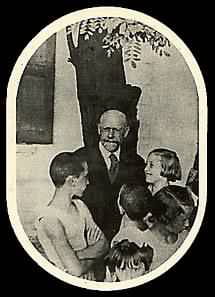 On May 26, New York City Opera’s VOX 2004 showcase will feature a work-in-progress concert performance of Act II from Korczak’s Orphans, a new opera by composer Adam Silverman and poet Susan Gubernat based on the life of Janusz Korczak (1878-1942). Korczak, a Polish Jew, was a medical doctor, Army officer, educator, radio personality, and author. He protected 200 Jewish children in his orphanage in the Warsaw Ghetto during World War II, and died with them at the concentration camp at Treblinka.
On May 26, New York City Opera’s VOX 2004 showcase will feature a work-in-progress concert performance of Act II from Korczak’s Orphans, a new opera by composer Adam Silverman and poet Susan Gubernat based on the life of Janusz Korczak (1878-1942). Korczak, a Polish Jew, was a medical doctor, Army officer, educator, radio personality, and author. He protected 200 Jewish children in his orphanage in the Warsaw Ghetto during World War II, and died with them at the concentration camp at Treblinka.
Korczak’s Orphans is based on the life of a visionary individual who not only endured the horrors of life in Nazi-occupied Poland, but emerged as a prescient figure in child-psychology while struggling to protect the orphans under his care. Korczak visualized orphanages as communities, and established such novel practices as a children’s court and newspaper that taught children responsibility, compassion, and fairness. In the orphanage that he built to shelter children left homeless in the Jewish Warsaw Ghetto, he created a “Children’s Republic,” complete with flag. When the Nazis finally came for him, he led the children in a “dignified processional out of the gates of the orphanage, past a stunned citizenry and muted cadre of SS officers,” Gubernat says, “the children carrying the flag of their ‘Children’s Republic’ into the waiting cattle cars,” which then transported all of them to certain death at Treblinka.
Conducted by NYCO’s music director George Manahan, the opera features Janusz Korczak as its central character, which will be sung by tenor Paul Mow, who starred in New York City Opera’s production of Of Mice and Men as Lennie Small. Also featured on the concert are works by Richard Danielpour (to an original libretto by Nobel laureate Toni Morrison), John Eaton, Tom Cipullo, Daniel Felsenfeld, Jennifer Griffith, Donald Hagar, Elodie Lauten. Admission is free, no tickets are required.
New York City Opera’s VOX 2004
Act II from Korczak’s Orphans
May 26th at 2:00 PM
Peter Jay Sharp Theater in Symphony Space
2537 Broadway at 95th Street, NY, NY
Admission is free
See Adam Silverman’s website for details.
Chopin In The Summer
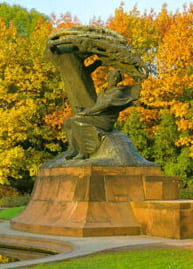 May marks the beginning of summer Chopin concert season in the Royal Łazienki Park and in Żelazowa Wola. The season in Żelazowa Wola starts off with recitals of Regina Smendzianka and Tadeusz Chmielewski on May 2nd. Concert season in Żelazowa Wola lasts from May till the end of September. In May, June and September, concerts are held only on Sundays (at 11 am and 3 pm). Sunday concerts feature renowned pianists, mainly winners of International Chopin Competitions. In July and August, Saturday recitals are held (at 11 am). They are called “The Youth Stage” and feature young artists.
May marks the beginning of summer Chopin concert season in the Royal Łazienki Park and in Żelazowa Wola. The season in Żelazowa Wola starts off with recitals of Regina Smendzianka and Tadeusz Chmielewski on May 2nd. Concert season in Żelazowa Wola lasts from May till the end of September. In May, June and September, concerts are held only on Sundays (at 11 am and 3 pm). Sunday concerts feature renowned pianists, mainly winners of International Chopin Competitions. In July and August, Saturday recitals are held (at 11 am). They are called “The Youth Stage” and feature young artists.
The first of the recitals in Łazienki Park are planned for May 16th. Du Taihang from China and Jean Marc Luisada from France perform that day. Concert season in the Royal Łazienki Park lasts from May until September. Concerts are held each Sunday at noon and at 4 pm at the foot of the monument to Frederick Chopin, pictured above.
The concerts at Żelazowa Wola and Łazienki Park are managed by the Frederick Chopin Society in Warsaw. See their website, www.chopin.pl or www.infochopin.pl for these and other Chopin concerts in Poland.
Bydgoszcz Opera Festival
The Bydgoszcz Opera Festival [Bydgoszcz Festiwal Operowy] is a review of the most interesting operatic and ballet productions from domestic and foreign musical theatres, which this year will be presented on the new stage of the Opera Nova in Bydgoszcz. This eleventh edition of the festival will begin on April 24th with the premiere performance of Giacomo Puccini’s Tosca as directed by Laco Adamik and performed by the ensemble of the Opera Nova of Bydgoszcz. The city will also play host to the Ballet du Capitole of France—one of that country’s best dance companies, famous for its masterful performances of the choreography of Balanchine and the great classical works adapted for its troupe of thirty-five dancers.
The Teatr Wielki (Grand Theatre) of Poznań will appear at the festival with its already renowned production of Umberto Giordano’s Andrea Chénier, directed by Mariusz Trelinski. Produced in cooperation with the Washington Opera, this staging will travel to the U.S. capital in September of 2004.
Also in the festival program, an evening entitled “In the Land of the Spanish Operetta,” [W krainie hiszpanskiej operetki] featuring soloists from Brazil, Uruguay and Mexico and the dancers and orchestra of the Opera Nova. The Teatr Rozrywki [Entertainment Theatre] of Chorzow will present its musical titled Dyzma, while the Opera Krakowska [Krakow Opera] will show The Rape of Lucretia [Gwalt na Lukrecji]. The festival will conclude on May 9th with a presentation of Giuseppe Verdi’s Ernani, directed by Grzegorz Chrapkiewicz and featuring the ensemble of the Opera Baltycka [Baltic Opera] of Gdansk.
Bydgoszcz Opera Festival, April 24 – May 9, 2004
Opera Nova – Panstwowa Opera w Bydgoszczy
Director: Maciej Figas
ul. Focha 5, 85-070 Bydgoszcz POLAND
tel. (+48 52) 325 49 31
fax (+48 52) 322 59 50
www.opera.bydgoszcz.pl
Information about the Bydgoszcz Opera Festival reprinted from the website of the Adam Mickiewicz Institute, www.culture.pl.
Polish Music In Mexico
 The 7th edition of Festival Cultural de Mayo in Mexico takes place from 7 May – 4 June. In the past, the festival has hosted hundreds of artists from such countries as: Germany, Canada, United States, Italy, France, Great Britain, Cuba, Romania, Russia, Hungary and Mexico. This year, the Festival features Polish artists for the first time in its history. Programs of many events are devoted to the works of Polish artists and to Frederick Chopin’s music.
The 7th edition of Festival Cultural de Mayo in Mexico takes place from 7 May – 4 June. In the past, the festival has hosted hundreds of artists from such countries as: Germany, Canada, United States, Italy, France, Great Britain, Cuba, Romania, Russia, Hungary and Mexico. This year, the Festival features Polish artists for the first time in its history. Programs of many events are devoted to the works of Polish artists and to Frederick Chopin’s music.
Festival Cultural de Mayo is held in the most prestigious concert halls and cultural centres of Estado de Jalisco in Mexico. The opening concert on May 7th features Polish pianist Stanislaw Drzewiecki in a program including Chopin’s Piano Concerto in e minor Op.11, Lutosławski’s Concerto for orchestra, Wagner’s The Mastersingers of Nuremberg. Other concerts featuring Polish composers and musicians include Gergely Bogányi in a Chopin recital on May 16th, the “Great Polish Composers” recital featuring Józef Olechowski on May 26th, and Manuel Delaflor in a Chopin recital on May 27th.
For more information and a list of concerts, see www.festivaldemayo.org or www.infochopin.pl
International Percussion Festival
“Sources and Inspirations”
7 May – 11 May
Krakow, Poland
The 2nd International Percussion Festival of the Academy of Music in Krakow will be a meeting of outstanding artists from culturally distant regions of the world presenting their musical fascinations. The percussion world is composed of a numerous and broad family of instruments. Their dynamic development since the beginning of the 20th century has resulted in the creation of innumerable pieces of music, a large and continuously developing branch of the music industry and a multitude of festivals and contests all over the world to support a new type of musician. Out if these same needs was borne the International Percussion Festival in Krakow.
Although concerts are an important part of this festival, they are by no means the only activity. The festival also encompasses lectures, workshops, discussions as well as exhibitions of instruments and music, aimed primarily at the instrumentalists themselves. And the final important aspect of this festival—young musicians from all over the world take part in the concerts. The festival is a chance for them to perform with famous artists and to show their skills to a wider audience.
For a detailed program, visit the website of the Academy of Music in Krakow, www.amuz.krakow.pl.
Wieniawski Featured In Albuquerque
 Henryk Wieniawski (b. 1835, Lublin – d. 1880, Moscow) owes his early introduction to the world of music to his mother, Regina, a professional pianist and the daughter of a Warsaw physician. His mother was also the driving force behind his musical training and subsequent development into a violin child prodigy. At the age of five he began violin lessons and three years later was admitted to the Paris Conservatory, overcoming the obstacles of being under-age and of foreign nationality. After completing with gold medal the accelerated course of study at the Conservatory he remained in Paris perfecting his technique under the care of professor Joseph L. Massart. It was then that he met in his mother’s Paris salon of the two most famous Polish emigrées: Adam Mickiewicz (poet) and Fryderyk Chopin. Wieniawski’s first, somewhat childish,compositions were written during that time (he was thirteen years old).
Henryk Wieniawski (b. 1835, Lublin – d. 1880, Moscow) owes his early introduction to the world of music to his mother, Regina, a professional pianist and the daughter of a Warsaw physician. His mother was also the driving force behind his musical training and subsequent development into a violin child prodigy. At the age of five he began violin lessons and three years later was admitted to the Paris Conservatory, overcoming the obstacles of being under-age and of foreign nationality. After completing with gold medal the accelerated course of study at the Conservatory he remained in Paris perfecting his technique under the care of professor Joseph L. Massart. It was then that he met in his mother’s Paris salon of the two most famous Polish emigrées: Adam Mickiewicz (poet) and Fryderyk Chopin. Wieniawski’s first, somewhat childish,compositions were written during that time (he was thirteen years old).
During his life time he was unquestionably considered “a violinist of genius,” an artist of great individuality, intensity of expression, and original technique. The influence of his technique is still evident in the style of some violinists of the Russian School.
Wieniawski’s grueling travel and concert schedule obviously interfered with his work as a composer. The comparatively modest body of compositional work which he left behind attests to the demands of the life of the traveling virtuoso. The relatively stable period of his residence in St. Petersburg (1860-1872) yielded the finest of his compositional works: Etudes-caprices op.18, Polonaise Brillante op.21, and the 2nd Violin Concerto in D-minor. The latter, a small masterpiece, has become a standard in the violin repertoire. While demonstrating the virtuoso possibilities of the violin technique,the composition is also characterized by Romantic lyricism and passionate melodic expression.
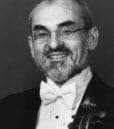 The 2nd Violin Concerto will be featured, along with Beethoven’s 3rd Symphony, on May 14th and 15th at 8 pm and 6 pm respectively during the New Mexico Symphony’s Classical Series. Krzysztof Zimowski (pictured at right), the NMSO Concertmaster since 1999, will be the soloist on this program. Mr. Zimowski was born in Wrocław, Poland. He has won numerous awards and has served as Concertmaster around the world, from Poland to Mexico to the U.S.
The 2nd Violin Concerto will be featured, along with Beethoven’s 3rd Symphony, on May 14th and 15th at 8 pm and 6 pm respectively during the New Mexico Symphony’s Classical Series. Krzysztof Zimowski (pictured at right), the NMSO Concertmaster since 1999, will be the soloist on this program. Mr. Zimowski was born in Wrocław, Poland. He has won numerous awards and has served as Concertmaster around the world, from Poland to Mexico to the U.S.
May 14th and 15th
2nd Violin Concerto of Henryk Wieniawski
New Mexico Symphony Orchestra
4407 Menaul Blvd. NE
Albuquerque, NM 87110
Tickets: 800-251-NMSO or (505) 881-8999
Biographical information about Wieniawski is excerpted from his PMC Biography, written by Maria Piłatowicz.
Poland’s Answer To Victor Borge
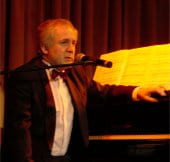 Waldemar Malicki, born in Lublin in 1958, is one of Poland’s most accomplished and popular virtuoso pianists, performing throughout the world as soloist with the country’s leading philharmonic and chamber groups and as accompanist to its leading violinists and singers. In the tradition of Leonard Bernstein and Glenn Gould he does educational television programs that blend performance with commentary and analysis. He also enjoys a side-specialty of highly popular improvisational parodies of the great masters of the keyboard, revealing a musical wit that recalls the late Victor Borge, the “Clown Prince of Denmark”. His East Coast Tour is presented by the impresario and conductor, Janusz Szporek, director of Brooklyn’s Music Education Center.
Waldemar Malicki, born in Lublin in 1958, is one of Poland’s most accomplished and popular virtuoso pianists, performing throughout the world as soloist with the country’s leading philharmonic and chamber groups and as accompanist to its leading violinists and singers. In the tradition of Leonard Bernstein and Glenn Gould he does educational television programs that blend performance with commentary and analysis. He also enjoys a side-specialty of highly popular improvisational parodies of the great masters of the keyboard, revealing a musical wit that recalls the late Victor Borge, the “Clown Prince of Denmark”. His East Coast Tour is presented by the impresario and conductor, Janusz Szporek, director of Brooklyn’s Music Education Center.
East Coast Tour: May 6-11, 2004
- May 6 at 8 PM – Polish Cultural Foundation, Clark, N.J.
- May 8 at 8 PM – Klub Europa, Greenpoint, NY
- May 9 at 3 PM – Klub Europa, Greenpoint, NY
- May 9 at 8 PM – Polish Consulate, Manhattan
- May 11 at 8 PM – Dom Polski, Academy Road, Philadelphia
Tickets @ $25 and information: (718) 486-6780 orjan.sporek@verizon.net
Skrzypczak Premieres
 The month of May will be an exciting one for composer Bettina Skrzypczak. Her String Quartet no. 4, whose scenic premiere in Basle was postponed, will now be premiered in concert on May 9, in Zurich. The work is played by the young, upcoming Amar Quartet who commissioned it.
The month of May will be an exciting one for composer Bettina Skrzypczak. Her String Quartet no. 4, whose scenic premiere in Basle was postponed, will now be premiered in concert on May 9, in Zurich. The work is played by the young, upcoming Amar Quartet who commissioned it.
Lettres for soprano, clarinet and cello will be premiered on May 14, in Munich. It is based on text fragments from the Livre dou Voir Dit by the French composer and poet Guillaume de Machaut. The work was commissioned by the Bayerische Staatsoper and will be played in the concert series “New Chamber Music” in the Munich Pinakothek der Moderne. The interpreters are Aga Mikolaj (soprano), Jürgen Key (clarinet) and Dietrich von Kaltenborn (cello), members of the Bayerische Staatsoper.
Three works of Bettina Skrzypczak are in the centre of attention on May 9, in Strasbourg (France), in a concert given by the distinguished Ensemble Linea: Scčne for violin and cello, Fantasy for oboe solo and Toccata sospesa for flute and two percussionists. The latter two pieces are French premieres. In a pre-concert talk, Bettina Skrzypczak will be interviewed about her music.
More information is available at www.bettina-skrzypczak.com.
PSAA Convention
The Polish Singers Alliance of America (PSAA), was founded in Chicago in 1889. It is an organization of choral groups primarily interested in the preservation and promotion of Polish choral music. Member choirs are assigned to one of six active districts, and are located throughout the United States and also in Canada.
District IV will host the 47th International Convention in Troy, Michigan starting May 27. Delegates will assemble at the Troy Marriott, the convention headquarters and location of the Grand Ball on May 29th, and Awards Banquet on May 30 at which time trophies will be awarded to the top three choirs in each competition category: Male, Female and Mixed Choir. Local venues have been chosen for the gala concert, choral competition, Saturday evening Mass, and brunch on Sunday. Other activities include receptions for delegates at Orchard Lake, tours of museums and galleries on Thursday, and a reception for delegates at the Polish American Cultural Center including dinner and entertainment on Friday. For more information, visit the PSAA website at www.polishsingersalliance.org.
Awards
Kosciuszko Chopin Piano Competition
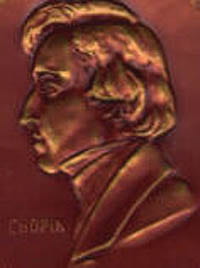 Stephen Beus, 22, was named the Second Prize Winner in the 2004 Kosciuszko Foundation Chopin Piano Competition. A Washington State native, he will enter The Juilliard School in New York City.
Stephen Beus, 22, was named the Second Prize Winner in the 2004 Kosciuszko Foundation Chopin Piano Competition. A Washington State native, he will enter The Juilliard School in New York City.
Sharing Third Prize were HUANG Chi-Fang, 21 years old, a Chinese native currently at the Curtis Institute in Philadelphia; Pallavi Mahidhara, 16 years old, a high school junior from Bethesda, MD; and Marianna Prjevalskaya, 21, a native of Moldavia currently studying at the University of South Bend, Indiana. There was no First Prize awarded.
The Competition was held April 1-3, at the Kosciuszko Foundation House and at Carnegie Hall’s Weill Recital Hall in New York. Jurors included Abbey Simon, Chair, of the Juilliard School and University of Houston; Constance Keene, the Manhattan School of Music; Anne Koscielny, a concert pianist and former Chopin Competition Laureate; Thomas Schumacher, the Eastman School of Music; and Ruth Slenczynska, concert pianist.
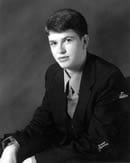 Stephen Beus began his study of music at age 5 as a Suzuki student and made his orchestral debut before he could read music. Completing the Suzuki repertoire at age 8, he auditioned and was accepted as a student of Dr. Leonard Richter, Walla Walla College, with whom he currently studies. Stephen is a popular performer and has maintained an ambitious performance and competition schedule since his first symphony performance at age 9 with the Oregon East Symphony. He has since performed concerti by Bach, Mozart, Chopin, Brahms, Grieg, Tchaikovsky, Rachmaninov and Prokofiev with orchestras in the Pacific Northwest, Texas, and Finland.
Stephen Beus began his study of music at age 5 as a Suzuki student and made his orchestral debut before he could read music. Completing the Suzuki repertoire at age 8, he auditioned and was accepted as a student of Dr. Leonard Richter, Walla Walla College, with whom he currently studies. Stephen is a popular performer and has maintained an ambitious performance and competition schedule since his first symphony performance at age 9 with the Oregon East Symphony. He has since performed concerti by Bach, Mozart, Chopin, Brahms, Grieg, Tchaikovsky, Rachmaninov and Prokofiev with orchestras in the Pacific Northwest, Texas, and Finland.
In 1993, Stephen was a named a finalist in the Junior Gina Bachauer International Piano Competition and won first place at that competition in 1996. He was also the winner of the 1997 Corpus Christi International Young Artists Concerto Competition, pre-college division, in Corpus Christi, Texas in 1997. Stephen was judged to be the outstanding North American applicant to the Van Cliburn Institute in Fort Worth, Texas and was the full scholarship recipient for that summer study program in 1999. In 2000 Stephen was invited to be a featured soloist at the World Piano Pedagogy Conference in Missouri and also participated in National Public Radio’s “From the Top” broadcast. Also in 2000, Stephen was named the national winner of the Music Teachers National Association Competition. Two weeks after winning the MTNA competition, Stephen won second place in the Kosciuszko Chopin Competition in New York City.
In September 2000, Stephen accepted a call to serve a two-year mission for the Church of Jesus Christ of Latter-day Saints in Finland. While in Finland, Stephen was able to perform extensively, touring the country, performing in numerous cities and appearing on television and radio interviews. Since his return from his mission in August 2002, Stephen has been attending Whitman College where he is continuing his study of the piano with Dr. Richter. In March 2003, Stephen won the collegiate division of the MTNA piano competition in held in Salt Lake City. As first place national winner, Stephen received an all-expenses paid trip to New York City where he toured the Steinway Factory and selected his own Steinway model M, first place prize. Other performances in the Fall of 2003 have taken Stephen to Chicago, Hawaii and Seattle.
Fryderyks
Nowy Dziennik reported the following on the 2003 Polish Fryderyk Awards, the Polish equivalent of the American Grammys:
- The Classical Music Award in Contemporary and Polish Music was given to the Polish National Symphony Orchestra of Polish Radio for its recording album of Górecki’s music.
- The historic recordings of Grzegorz Fitelberg were chosen in the Symphonic Music category.
- Contralto Ewa Podleś and pianist Garrick Ohlsson took the Vocal Music award.
“Polish Folk Song Gets Its Due”
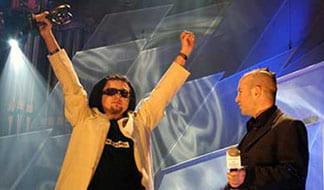
This is the title of a front-page article in the Polish American Journal April 2004 issue about the Warsaw Village Band. The group won international recognition with the recent nomination in the newcomer category of World Music Awards from BBC Radio 3.
The article tells us that this ensemble has “created a genre of music they call ‘hardcore folk’—thanks to the electronic remixes featured on the CD.” It continues to provides us with a background “on their countryside journeys” and how the “band keeps their material fresh using the same means as classical ethnographic research: documenting dying traditions with live recordings of various polish folk festivities and village celebrations. Their lineup includes the suka—a Polish fiddle from the 16th century” and other century-old instruments. You can read more about them on their web-site: wvb.terra.pl.
In Other Humanities
Leszek Kolakowski Wins First John W. Kluge Prize
Following a thorough-going, worldwide selection process that began two years ago with a solicitation for nominations from over 2000 leading scholars, one of the world’s greatest living philosophers, Leszek Kolakowski, has been named the first winner of a prestigious new lifetime achievement award deliberately designed to honor work not covered by the Nobel Prizes, i.e., in the humanities and social sciences, broadly defined. The announcement was made on November 4 by Dr. James H. Billington, the Librarian of Congress.
The award was presented on November 5 at the Library’s John W. Kluge Center, a research institute that serves as a catalyst for dialogue between the world’s pre-eminent scholars in the humanities and social sciences, on the one hand, and political leaders and lawmakers on the other. Leszek Kolakowski, born in Radom, Poland, in 1927, has had a profound influence not only on contemporary philosophy but on the recent history of Poland in particular and of Europe as a whole. He now lives in Oxford, England, where he was a Senior Research Fellow in philosophy at All Souls College until his retirement in 1995, and where he still teaches an annual course for Polish students at Oxford.
“Year Of Gombrowicz”
 The Institute of Polish Studies at Jagiellonian University and the Polish Ministry of Culture organized an international conference, “Witold Gombrowicz—Our Contemporary”, from March 22 through 27, 2004, a year officially proclaimed as The Year of Gombrowicz for the 100th anniversary of the writer’s birth (August 4) and the 35th anniversary of his death (July 24). An extraordinary gathering of distinguished scholars from all over the world explored the remarkable relevance today of Gombrowicz’s work and ideas. The conference was conducted in Polish, English, and French.
The Institute of Polish Studies at Jagiellonian University and the Polish Ministry of Culture organized an international conference, “Witold Gombrowicz—Our Contemporary”, from March 22 through 27, 2004, a year officially proclaimed as The Year of Gombrowicz for the 100th anniversary of the writer’s birth (August 4) and the 35th anniversary of his death (July 24). An extraordinary gathering of distinguished scholars from all over the world explored the remarkable relevance today of Gombrowicz’s work and ideas. The conference was conducted in Polish, English, and French.
The conference organizers believed strongly that thoughts contained in Gombrowicz’s oeuvre are very much relevant today and that they possess the unusual quality of continuously relating to the present moment and our most contemporary concerns. Gombrowicz proudly named himself the precursor of existentialism and the “first structuralist”; today, we can find in his writings the harbingers of postmodernism, gender, queer, and post-colonial studies, as well as numerous other currents of thought that came into being after the death of the author of Ferdydurke.
Information for these two awards taken from the website of the Polish Cultural Institute, www.polishculture-nyc.org
SKYY Film Award
The San Francisco International Film Festival (April 15-29, 2004) announced its Award Winners at the Golden Gate Awards Ceremony. SKYY Prize Winner for Best Narrative Feature went to SQUINT YOUR EYES (Poland), Andrzej Jakimowski, director. The SKYY Prize is given to a new filmmaker whose work exhibits a unique artistic vision.
Internet News
Nowa Muzyka
There is a new website for Polish-speaking lovers and scholars of new Polish music: free.art.pl/nowamuzyka. Grzegorz Filip, the editor of a this website, has set out to fill in what he sees as a void in publications dealing with new music only in Poland. The website includes reviews of recordings and concerts as well as discussions of new composers and their compositions. Submissions are by both beginning and experienced music critics.
This website is concerned with music from the 20th and 21st centuries: Schoenberg to today, from minimalism to neo-classical, from sonorism to postmodernism.
Piano Competitions Listing
For extensive information on International Piano Competitions, visit the website of the Alink-Argerich Foundation at www.alink-argerich.org. There is a fee to view all of the listings. This site is updated every week.
Infochopin
This new website was announced in last month’s newsletter, but here’s some more background information:
A new web-site, www.infochopin.pl, was inaugurated in February in Poland and will ultimately appear in seven languages, including Chinese and Japanese. The program InfoChopin is sponsored by the National Center of Culture and Polish Tourist organization under the direction of Waldemar Rzepecki and chief editor Dorota Kanska. This site is a excellent resource for all things Chopin!
Performances
Gierlach Sings Magic Flute
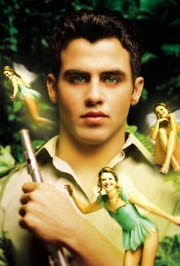 The Michigan Opera Theatre is committed both to quality opera productions and to music/theater education in its community. Their most recent production of Mozart’s The Magic Flute accomplishes both of these goals. It presents fine operatic singing and expressive acting in a wacky, fantastical atmosphere that makes the opera as appealing to children as to opera connoisseurs.
The Michigan Opera Theatre is committed both to quality opera productions and to music/theater education in its community. Their most recent production of Mozart’s The Magic Flute accomplishes both of these goals. It presents fine operatic singing and expressive acting in a wacky, fantastical atmosphere that makes the opera as appealing to children as to opera connoisseurs.
Although the character of Tamino is generally considered the hero of The Magic Flute, Lawrence B. Johnson, the Detroit News Music Critic, expressed a different opinion in his article of 27 April. Johnson feels that, in the MOT production, it is Polish baritone Robert Gierlach, in the role of the bird-catching side kick Papageno, who steals the show and the hearts of audience members. “The people’s hero by acclamation was in the irresistible persona—hmm, maybe that’s not the word—of Papageno, the loopy, earthy, perpetually terrified bird-catcher who could possibly be, well, part bird himself. In this English-language production, Gierlach, who is Polish, not only delivered his arias clearly and expressively—and in a supremely musical voice—but also conveyed the great stretches of spoken dialogue with impeccable comic timing.”
Lawrence B. Johnson’s full article from the Detroit News is available at www.detnews.com. The The Magic Flute runs at Michigan Opera Theatre from April 24 to May 2, 2004.
Toledo Symphony
The seventh installment of the Toledo Symphony’s Classics Series featured Polish music on April 2nd and 3rd, 2004. Chopin’s First Piano Concerto was performed to lyrical perfection by young American pianist Orli Shaham. Kazimierz Kord, the Music Director of the Warsaw Philharmonic, joined the TSO for a virtuoso performance of Witold Lutosławski’s grand orchestral showpiece, Concerto for Orchestra, as well as the overture to Moniuszko’s Baika.
Poznań Musical Spring
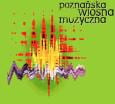 The first Poznań Musical Spring Festival, organized in 1961 as part of the 2nd Wielkopolska Region Cultural Festival, presented, above all, the work of Poznań composers. As the years went by, the festival became an important all-Polish artistic event and reached its apogee in mid-seventies of the 20th century: more and more works were commissioned, the program was broadened to include large-scale oratorios, operas and ballets. The most distinguished composers came to Poznań and the concerts were accompanied by musicological conferences. This year, the Festival, which lasted from 16 – 25 April 2004, celebrated its 38th anniversary.
The first Poznań Musical Spring Festival, organized in 1961 as part of the 2nd Wielkopolska Region Cultural Festival, presented, above all, the work of Poznań composers. As the years went by, the festival became an important all-Polish artistic event and reached its apogee in mid-seventies of the 20th century: more and more works were commissioned, the program was broadened to include large-scale oratorios, operas and ballets. The most distinguished composers came to Poznań and the concerts were accompanied by musicological conferences. This year, the Festival, which lasted from 16 – 25 April 2004, celebrated its 38th anniversary.
The organizers of the festival have been trying their hardest to maintain the importance of the Poznań Musical Springs by broadening the range of the festival programme to include the classical works of the 20th century, so far unknown to the audiences of Poland and the Wielkopolska region, as well as by the international cooperation with musical academies and the return to the tradition of academic encounters. For several years the involvement of the festival and the Poznań section of the Polish Composers’ Union in the international cooperation have been growing. The works of young composers from Weimar, Chicago and Cologne have been regularly performed.
Currently, Maciej Jablonski is the director of the festival and Krzysztof Meyer the author of its programme conception. This year’s repertoire included the works by W. Lutosławski, F. Martin, K. Meyer, M. Ptaszyńska and W. Widlak. Performers included Andrzej Bauer, Urszula Krygier, Ivan Monighetti, the piano duo Adrianne Soos and Ivo Haag from Switzerland, the Academic Choir of the Adam Mickiewicz University in Poznań under the direction of Jacek Sykulski, the “Amadeus” Chamber Orchestra under the direction of Agnieszka Duczmal and the Poznań Philharmonic Orchestra under the direction of Jose Maria Florencia.
This article is reprinted from Polskie Wydawnictwo Muzycne, www.pwm.com.pl.
Jazz In Krakow
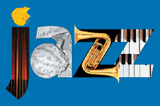 During this 10th anniversary edition of “THE OLD AND THE YOUNG, OR JAZZ IN KRAKOW,” members of the public had an opportunity to hear stylistically varied jazz. The theme of this year’s festival was “Sources of Inspiration,” and alongside rhythms of the Argentine Tango, audiences heard samples of Italian jazz, elements of Romany music (that to this day appear in French jazz violin) and Balkan influences. The line-up also included performers inspired by classical music and free jazz artists.
During this 10th anniversary edition of “THE OLD AND THE YOUNG, OR JAZZ IN KRAKOW,” members of the public had an opportunity to hear stylistically varied jazz. The theme of this year’s festival was “Sources of Inspiration,” and alongside rhythms of the Argentine Tango, audiences heard samples of Italian jazz, elements of Romany music (that to this day appear in French jazz violin) and Balkan influences. The line-up also included performers inspired by classical music and free jazz artists.
The main idea of this Festival is group music making. “The Old” refers to jazz stars and music teachers; “the Young” on the other hand are students of jazz schools from all parts of the world. This event provides young jazz musicians the opportunity to confront masters of the art form. It also helps musicians to forge new musical contacts and encourages joint projects involving artistically inclined youth. Direct confrontation of students and masters takes place during long, nighttime jam sessions.
The official website for this event is www.jazz.krakow.pl.
Information about the Jazz in Kraow reprinted from the website of the Adam Mickiewicz Institute, www.culture.pl.
Spanish/Polish Program In LA
During the Piano Spheres recital on Tuesday April 22nd at the Colburn School of Performing Arts in L.A., pianist Susan Svreck presented works by Spanish composers Hector Villa-Lobos and Carlos Chavez, both of whom wrote tributes to Chopin in 1949 on the centenary of the Polish composer’s death. In his review for the Los Angeles Times, Chris Pasles gave an excellent description of the works. “In his two-part Hommage a Chopin, Villa-Lobos took quasi-narrative forms that Chopin perfected—the nocturne and the ballade—out of the European salon and transported them persuasively to the pungent world of Villa-Lobos’ native Brazil.” Chavez, in his Estudio (Homenaje a Chopin), focused on technical problems such as those addressed in the Chopin etudes. “He wrote an astringent, abstract piece that severely challenges a pianist’s rhythmic sense and independence of hands. Svreck sailed through both works, as she did afterward through a straight-forward performance of Chopin’s moody Barcarolle in F sharp.”
Andreszewski In Southern Cal
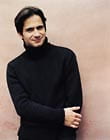 Called the “electrifying young Polish pianist,” by Mark Swed of the Los Angeles Times, Piotr Anderszewski has received glowing reviews from two local newspapers for his performances at the Orange County Performing Arts Center and UCLA. He is currently on tour with soprano Dawn Upshaw, of Górecki’s Third Symphony fame, and the Australian Chamber Orchestra, led by violinist Richard Tognetti.
Called the “electrifying young Polish pianist,” by Mark Swed of the Los Angeles Times, Piotr Anderszewski has received glowing reviews from two local newspapers for his performances at the Orange County Performing Arts Center and UCLA. He is currently on tour with soprano Dawn Upshaw, of Górecki’s Third Symphony fame, and the Australian Chamber Orchestra, led by violinist Richard Tognetti.
Timothy Mangen reported in the Orange County Register that the Polish pianist “could come into this milieu and not only hold his own, but actually steal some of the Australians’ thunder.” Each performance “closed with Tognetti’s arrangement of Szymanowski’s challenging String Quartet No. 2 from 1927…The superb arrangement, by the way, was no mere blow-up of the quartet, but an impeccable orchestration, complete with tutti and solo passages. A good crowd was on hand, despite the $75 ticket price.”
Art Song in NJ
Tenor Dayle Vander Sande and pianist Magdalena Baczewska presented “Piesn Wiekow (Songs of the Ages)—A Survey of Polish Art Songs” in a recital sponsored by the Polish Cultural Foundation of Clark, New Jersey and the Sons of Poland. The program featured rarely-performed songs by prominent Polish composers from the origins of the art song genre in Poland, spanning the late 18th to the late 20th centuries. We hope this event was recorded for those of us on the West Coast!
Chopin, Mon Amour
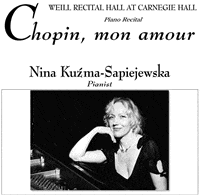 A recital of Chopin’s music performed by pianist Nina Kuzma-Sapiejewska and dedicated to Chopin’s lover, novelist George Sand on her 200th birthday anniversary, was held at Carnegie Hall on 18 April. Janusz M. Szlechta wrote a favorable preview about the artist in Nowy Dziennik. Nina is one of the founders of the annual “Chopin and Friends” festivals that has been held in New York in November for five years now.
A recital of Chopin’s music performed by pianist Nina Kuzma-Sapiejewska and dedicated to Chopin’s lover, novelist George Sand on her 200th birthday anniversary, was held at Carnegie Hall on 18 April. Janusz M. Szlechta wrote a favorable preview about the artist in Nowy Dziennik. Nina is one of the founders of the annual “Chopin and Friends” festivals that has been held in New York in November for five years now.
Polish-Israeli Friendship Festival
A third concert of the recently inaugurated Polish-Israeli Festival, in the Polish city of Łódz where pianist Artur Rubinstein was born, was held in January. The Łódz Symphony Orchestra, named after the late pianist, was led by Simca Heled of Israel and performed Górecki’s Three Pieces in the Old Style.
Oratorio Premiere
The world premiere of Piotr Rubik’s oratorio, Swietokrzyska Golgota [St. Cross’ Golgota], was witnessed by thousands in the cathedral in Kielce, Poland. The oratorio consists of twelve meditations, each depicting the stations of the cross.
Calendar Of Events
MAY 1: Poland joins the European Union. See above for a list of concerts and celebrations.
MAY 1: Barbara Liberasky-Nowicki, sop. “Mostly Opera in the Park.” Everhart Museum, Scranton, PA. $25 concert; $42 concert & buffet. (570) 346-3593. (Barbara is a specialist on Polish art songs).
MAY 2: The season in Żelazowa Wola, Chopin’s home-town, starts off with recitals of Regina Smendzianka and Tadeusz Chmielewski. Concert season in Zelazowa Wola lasts from May until the end of September. For more information, visit www.infochopin.pl.
MAY 2: : Stanislaw Drzewiecki, piano and Prima Vista, string quartet, both of Poland, will be performing Chopin’s Scherzo no. 3 in c sharp minor, Op.39; Nocturne in c sharp minor, Op.27 no. 1; Sonata no. 2 in b flat minor, Op.35; and Piano Concerto no. 1 in e minor, Op.11. 6:30 pm. Hungary, Budapest – Óbudai Társaskör. Tel. 00-361-2611798 or 00-361- 250-0288
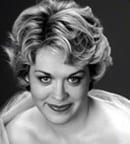 MAY 7: Olga Kern, piano (pictured at left), winner of 2001 Van Cliburn Gold Medal. Chopin: Piano Concerto No. 1 in e minor. Chamber Orchestra of the South Bay, Frances Steiner, cond. El Camino College for the Arts. Crenshaw Blvd. at Redondo Beach blvd. Friday 8:00 pm 1-800-832-ARTS. Tickets: $26/22.
MAY 7: Olga Kern, piano (pictured at left), winner of 2001 Van Cliburn Gold Medal. Chopin: Piano Concerto No. 1 in e minor. Chamber Orchestra of the South Bay, Frances Steiner, cond. El Camino College for the Arts. Crenshaw Blvd. at Redondo Beach blvd. Friday 8:00 pm 1-800-832-ARTS. Tickets: $26/22.
MAY 7: Festival Cultural de Mayo opens with a concert featuring Polish pianist Stanislaw Drzewiecki. Program includes Chopin’s Piano Concerto in e minor Op.11, Lutosławski’s Concerto for orchestra, Wagner’s The Mastersingers of Nuremberg. Estado de Jalisco, Mexico. For more information and a list of concerts, see www.festivaldemayo.org or www.infochopin.pl
MAY 8: The Polish Arts and Culture Foundation Annual Gala Polonaise Ball in the Gold Room of The Fairmont Hotel. San Francisco 5 pm – 12 am. Strictly formal attire. Entertainment by PODHALE of Los Angeles and Ms. Robyn Carmichael, piano—United States Premiere of Liszt’s composition Chopin, Salve Polonia. Info: POLISHCULTURESF@AOL.COM, WWW.POLISHCULTURESF.ORG, or (510)599-2244. To receive an invitation, please contact The Polish Arts Foundation at (510)599-2244 polisharts@aol.com.
MAY 8: CSUF Faculty Recital: Robert Watson and Serge Martinchuk, duo pianos. Lutosławski: Variations on a Theme by Paganini, for Two Pianos, plus Beethoven and Tchaikovsky piano concertos (with piano orchestral reductions). California State University Fullerton—Little Theater, 800 N. State College Blvd., Fullerton CA. Tickets: $20 at the door. For more information, call (714) 278-3371 or visit www.fullerton.edu/arts/events.
MAY 8: Lutosławski: Silesian Melodies, Strauss, Dvorak & Mendelssohn. Divertimenti Ensemble. West Kent College, Tonbridge, Eng. 01732 838698.
MAY 9: San Francisco Polish Constitution Day in Golden Gate Park at 1:00 pm.
 MAY 10: Evgeny Kissin, piano. Chopin: Polonaises & Impromptus, Medtner & Stravinsky. Bridgewater Hall, Manchester, Eng. www.bridgewater-hall.co.uk. Tickets: +44 (0)161 907 9000.
MAY 10: Evgeny Kissin, piano. Chopin: Polonaises & Impromptus, Medtner & Stravinsky. Bridgewater Hall, Manchester, Eng. www.bridgewater-hall.co.uk. Tickets: +44 (0)161 907 9000.
MAY 13: Evgeny Kissin, piano. Same program as above. Symphony Hall, Birmingham, Eng. www.symphonyhall.co.uk. Tickets: +44 (0) 870 730 0196 or cs.boxoffice@necgroup.co.uk.
MAY 14: Angela Hewitt, piano. Chopin: Nocturnes & Scherzo, Beethoven. St. George’s. www.stgeorgesbristol.co.uk. 0117 923 0359.
MAY 14: Lutosławski: Musique funebre, Schubert & Strauss. BBC Scottish Symphony Orchestra. Heinrich Schiff, cond. Aberdeen Music Hall. 01224 641 122.
MAY 14-15: 2nd Violin Concerto of Henryk Wieniawski, performed by NMSO concertmaster, Krzysztof Zimowski.New Mexico Symphony Orchestra, 4407 Menaul Blvd. NE, Albuquerque, NM 87110. Tickets: 800-251-NMSO or (505) 881-8999.
MAY 16: The first of the recitals in Łazienki Park will feature Du Taihang from China and Jean Marc Luisada from France. Concert season in the Royal Lazienki Park lasts from May until September. For more information, visit www.infochopin.pl.
MAY 16: Gergely Bogányi in a recital of Chopin’s 24 Preludes, Op. 28. Festival Cultural de Mayo, Estado de Jalisco, Mexico. For more information, see www.festivaldemayo.org or www.infochopin.pl.
MAY 17: BBC Radio 90-93 FM, 10:00 am – 12:00 pm. CD Masters. Program includes: Chopin Mazurkas & Waltzes conducted by Felix Weingartner.
MAY 17: BBC Radio. 7:30-9:30 p.m. Manchester International Cello Festival. Penderecki’s Cello Concerto Grosso for 3 Cellos.
MAY 18: Evgeny Kissin, piano. Chopin, Medtner & Stravinsky. SBC Royal Festival Hall. www.rfh.org.uk. Tickets: 0870 401 8181.
MAY 22: World famous Tamburitzans of Duquesne University (pictured above) present dances of Eastern Europe. The Annunciation Byzantine Catholic Church of Anaheim, CA. 7:00 pm. For ticket information and directions, visit www.annunciationbyzantine.org/tamburitzans.html. To view the program, visit www.annunciationbyzantine.org/tamburitzans-program04.html
MAY 24: Evgeny Kissin, piano. Same program as above. Bridgewater Hall, Manchester, Eng. www.bridgewater-hall.co.uk.
MAY 25: Paul Lewis, piano. Works by Chopin, Beethoven, Busoni & Scriabin. Queen Elizabeth Hall. www.rfh.org.uk. 020 7960 4242.
MAY 26: New York City Opera’s VOX 2004 presents Act II from the new opera Korczak’s Orphans.Peter Jay Sharp Theater in Symphony Space, 2537 Broadway at 95th Street, NY, NY. 2:00 PM. Admission is free. See above for details.
MAY 26: The “Great Polish Composers” recital featuring Józef Olechowski, piano. Program: Paderewski, Szymanowski, Janiewicz and Chopin. Festival Cultural de Mayo, Estado de Jalisco, Mexico. For more information, see www.festivaldemayo.org or www.infochopin.pl.
MAY 27: Manuel Delaflor, piano. Program: 24 Etudes of Chopin, Op. 10 and 25. Festival Cultural de Mayo, Estado de Jalisco, Mexico. For more information, see www.festivaldemayo.org or www.infochopin.pl.
Discography
by Wanda Wilk
Gary Fitelberg of San Fernando valley sent interesting information on a historic recording of Karol Rathaus and Jerzy Fitelberg’s Piano Sonatas, which were premiered by Kolja Lessing and are featured together with a sonata by Grete Von Zieretz on a CD of “Franz Schreker’s Masterclass in Vienna and Berlin.” It is on a German label EDA0192. It is available on the internet from a British company, Castle Classics Piano & Harpsichord. They also have BBC Legends Mieczyslaw Horszowski recital and various Van Cliburn competitions winners. Gary sent me a very comprehensive analysis and comparison of the works of these two important Polish-Jewish composers [Karol Rathaus (1895-1954) and Jerzy Fitelberg (1903-1951), who both lived in the U.S.), which he found on www.eda.records.com.
The “French-Ness” Of Chopin
“Not by Accident”: A Conversation with Madeleine Forte
by Peter J. Rabinowitz, published in Fanfare, July/August 2001
Reprinted by permission
Pianist Madeleine Forte may not be widely known, but her recent Ravel recital made something of a splash: Her playing was welcomed on these pages as “vibrant” and “intensely affectionate” by Peter Burwasser (23:1), and her “gorgeous tone and sensuous line” were singled out for praise by James M. Keller in the New Yorker. Her affinity for Ravel is perhaps not surprising. True, she has a wide repertoire that includes such virtuoso blockbusters as the Barber and Liszt Sonatas, and for a while she was even known as a Bartók and Liszt specialist. But as she put it in an interview in April, “I am French, and at this point in my life I think I can bring more to French composers. This is not by accident. Cortot used to quote Debussy as saying ‘On parle mieux dans sa propre langue’ [One speaks better in one’s own language]. It’s possible that Debussy really did say that; he was very nationalistic. And I agree that your country does form you, the literature and so on. That doesn’t mean that you cannot play Brahms or you cannot play Schumann. But there really is a birthright.” No wonder, then, that her orientation nowadays is toward Debussy, Ravel, Messiaen…. And Chopin—for Forte is one of those who consider Chopin part of the French tradition. “Chopin was 19 when he went to Paris. His soul was Polish, but his refinement was definitely French. He was half French, he lived all his adult life in France, he had a French mistress.” If you compare his early music to “the Barcarolle and the Ballades, there is an evolution; it becomes more cultivated. Of course, it is the normal process of somebody growing up, but there is also definitely a culture around it, because he spent his whole life in Paris. So we can claim that Chopin is part of our French cultural background.” Orientation, of course, is grounded not only in birth but also, as she explains it, in physical and emotional makeup. In addition, it is grounded in training and experience, and Forte has a distinguished pedigree (although it is, significantly, not entirely or unambiguously French). She got her first lessons from her aunt: “She was a wonderful singer, but from a very religious family. They prevented her from being onstage, because only ‘bad girls’ were on the stage at that time. I could hear the operatic works sung by her and her students, oratorio melodies, Mozart, Puccini, everything, so I already had an ear formed thanks to her. We talk about talent and we talk about education. I don’t know how much talent I had, but I definitely had the most wonderful education from her. But she was so smart that she realized her limitations. She wanted me to have great masters, she had high dreams.” In particular, her aunt “dreamed about Wilhelm Kempff.
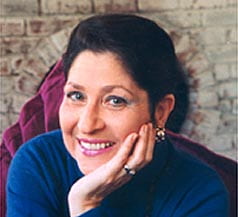 “I started playing when I was very very young. And I started to have tension in my shoulder and my arms because I was one of those little kids who wanted to impress the other little kids. I was playing the A-flat Polonaise by Chopin and the Rhapsody No. 2 by Liszt, and I was probably banging hard. My aunt didn’t know how to take care of tension, so as soon as we could get in touch with Wilhelm Kempff, she brought me to him.” Did she know Kempff? “No, she didn’t know him at all. I was 12; I was already playing the first movement of the Beethoven ‘Appassionata’ and the last movement, so after a concert she brought me to him, and we chatted. She must have said the right word, because there I was sitting, after the concert, trying to impress him with all the grand arpeggios of the ‘Appassionata,’ the first movement. He put his hand on my shoulder—he had wonderful hands—and he explained to me, ‘Madeleine, relax, relax,’ with his German accent. And he waved his arm, he flapped his arm in the air, and said to me, ‘You must play like a little bird.’ That stayed with me my whole life.
“I started playing when I was very very young. And I started to have tension in my shoulder and my arms because I was one of those little kids who wanted to impress the other little kids. I was playing the A-flat Polonaise by Chopin and the Rhapsody No. 2 by Liszt, and I was probably banging hard. My aunt didn’t know how to take care of tension, so as soon as we could get in touch with Wilhelm Kempff, she brought me to him.” Did she know Kempff? “No, she didn’t know him at all. I was 12; I was already playing the first movement of the Beethoven ‘Appassionata’ and the last movement, so after a concert she brought me to him, and we chatted. She must have said the right word, because there I was sitting, after the concert, trying to impress him with all the grand arpeggios of the ‘Appassionata,’ the first movement. He put his hand on my shoulder—he had wonderful hands—and he explained to me, ‘Madeleine, relax, relax,’ with his German accent. And he waved his arm, he flapped his arm in the air, and said to me, ‘You must play like a little bird.’ That stayed with me my whole life.
“I would not have lessons every week, but every time he was playing a concert we would catch him, and he was wonderful. It was a dream for me. Eventually, in the 60s, he invited me to go to Positano, where he was giving those Beethoven courses, and I was invited among 12 people from all over the world. It was absolutely fabulous; it was a whole Beethoven course.
“My aunt’s next dream was to meet Cortot. She had a connection with Cortot because she was playing with Francis Thibaud, a cellist, and Francis was the brother of Jacques Thibaud. And so, around the same age—I was 13 or so—we went to meet Cortot in Lausanne, because, as you remember, there was an interdiction preventing him from being in France, because he had collaborated with the Germans during the war.” Study with Cortot “was much more serious, because he was much more accessible, since he was not playing as much as Kempff. By then I was becoming a teenager; I was in school of course, but we would go and travel, and Cortot eventually accepted me. I don’t know if it was because he was interested or because of the connection with Francis Thibaud. I went to the École Normale, and he was a wonderful teacher.
[…]
What interpretive qualities did she pick up from Cortot? “For example, the scale had to flow like water. You know, when Chopin would write to his family he would always make fun of the phrase ‘like water.’ At the end of his life he was in England, and everybody said, ‘like water, like water.’ So he would write to his family in Poland about those comments.”
Of course, Forte’s description of Chopin—”his soul was Polish but his refinement was definitely French”—reminds us of the duality in his music. And Forte’s background may give her special insight into the Polish side as well. “I was in Poland, and I worked for 15 months with Zbigniew Drzewiecki. I went on a grant, because, like all French people, we are just Russian crazy or Polish crazy. I had applied for a scholarship, and it arrived. So I took it. I arrived in Poland—it was freezing; I thought I would die. I was arriving from the very sophisticated life of Paris. My father was a lawyer; we had all the luxuries. But it was in the 1960s, and Poland was communist then, so I really suffered. There was nothing: I had to exchange my clothes for meat. It was a complete shock, but I was daring. I was very young, and it was an adventure. I went on a train just to feel the distance between Paris and Poland. There was a lot of dreaming about Chopin.
“So I, arrived there, and my teacher was Drzewiecki. He was much stricter than Cortot. He was very difficult, but he had a certain sense of dry humor, and, when you got used to it, it was all right. He spoke French with me, which helped, but I also learned Polish at the university. His approach was: A priori, it was not good. You could never please him. He saw me at the movies one day at 8 pm, and then the following day at 8 am I was supposed to have a lesson. He said it was atrocious, just because he disliked the idea of me being at the movies 12 hours before.
“But he would dance with me. He was quite old, another antique. I think it was nice for me to have all those antique teachers, definitely the foot in the other century. Even my aunt was from the other century. Drzewiecki wanted to explain to me the Polish rhythm of the mazurka and the polonaise because he felt that, as a French person, I didn’t understand anything. He used a cane because he had a bad leg, but he danced with me with the cane, and I was more worried about the cane than about the rhythm, but I got it. He made me dance the mazurka and the polonaise, and I felt it in the body, just like people use it for little children. He always wanted a deeper tone: He said the French were too superficial. And of course at that time I was very young, and I had very fast fingers, and it is possible that I was playing too fast. It got in the way a little bit once in a while, and he didn’t like that at all. “I remember one day, before a very important performance I had in Poland…. I was quite famous, the French girl coming to Poland. I spoke Polish and I had friends and I was very, very social and gregarious. So I had a very important performance coming, but I had a fever. But you know what it is when you’re an artist: Whether you have a fever or not, you go. So I went to play the whole program for him, and he asked me how I felt, and I said, ‘Not too good, Professor, Master, I think I have the flu.’ And he said ‘Today, you are very good. From now on, I want you to be sick before you play concerts.’
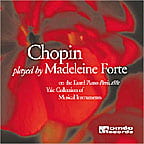 “Also, I was learning a lot of Polish, and he was impressed, but he was so nasty. He managed to say, ‘If you do not learn a lot of great Polish piano, at least you are learning a lot of the Polish language.’ He was very sharp, and he made me mad. Once I didn’t go back for a whole month because I was really furious. But right now I am really grateful, because I cherish that memory; I learned a lot from him the hard, European way, that Russian, Polish school where, you know, you never hear about any problem, any indisposition. It was tough but it was great. And when I came back everyone felt that I had improved a lot. They really work on your ego, and you become more and more humble.”
“Also, I was learning a lot of Polish, and he was impressed, but he was so nasty. He managed to say, ‘If you do not learn a lot of great Polish piano, at least you are learning a lot of the Polish language.’ He was very sharp, and he made me mad. Once I didn’t go back for a whole month because I was really furious. But right now I am really grateful, because I cherish that memory; I learned a lot from him the hard, European way, that Russian, Polish school where, you know, you never hear about any problem, any indisposition. It was tough but it was great. And when I came back everyone felt that I had improved a lot. They really work on your ego, and you become more and more humble.”
At the time of the interview, Forte was a few weeks away from a private Chopin recital for trustees and associates of the Yale Collection of Musical Instruments, playing on an Érard and a Pleyel from the collection—and her interest in those instruments adds yet another dimension to her perspective on French music and on Chopin more particularly. “I was raised on those pianos; this is part of my background. We never had the third pedal, we didn’t have the huge resonances and harmonics of the Steinway.” To return to Cortot’s insistence that the scales must flow like water: “When we talk more precisely about how the scales flow like water, what I’m going to tell you now applies to Chopin and to French music: It is due to the pianos. You see, when I play my double notes on an Érard or a Pleyel, I can play them legatissimo. But if I play double notes on a Steinway I have to work hard to do them legatissimo because they will sound more staccato. There is an ease on the Érard and Pleyel, the French pianos, they flow. You have more speed, you have more lightness, you have more clarity of sound because we don’t have the rich harmonics of the Steinway. And Chopin never wrote for a Steinway. Liszt had a Bösendorfer and all those big pianos. I would not want to play Liszt on a Pleyel, for example. I could play Liszt on an Érard, but of course Liszt planned such a big, huge sound, and you are really more rewarded on a German piano like a Steinway or a Bösendorfer.”
In addition, on the Érard and Pleyel “you have a wood sound board; everything is wood on those French pianos. And another thing: The strings are not crossed. The sound is minimized, but you gain clarity. In addition, you play in a smaller hall. I will be playing in the museum, which is probably 100 or 125 people. So we are going back to what it was in the 19th century, to a salon. When you play on those instruments, you go back in time; you definitely go back in time.
“I am sure that Chopin would have detested the Steinway or the Bösendorfer. You never hear of Chopin playing on a Bösendorfer, although it was accessible to him. He concentrated on Érard and Pleyel, but he liked Pleyel more. He said that, when he was in a great mood, he liked to play on the Pleyel. When he was under the weather, he played on the Érard, because the Érard produces a better sound without working hard.”
At her upcoming recital, Forte said, she was planning to play the Prelude, op. 45, on a Pleyel: “It’s an 1842 piano from the time of Chopin, although not Chopin’s piano. Mazurkas work very well on the Pleyel: It has a quaint, lovely sound, a little bit like a music box. It doesn’t have too much legato, so you have to be very careful and use your pedal accordingly.” But the instrument is “a little bit old,” so she planned to play the rest of the recital (six preludes, the Barcarolle, some études, the Ballade, op. 52, a couple of nocturnes, and “the big Polonaise of Rubinstein, the A-flat”) on an 1881 Érard, “because it is in better condition. It has not been rebuilt; it has been kept in perfect condition.”
How different is the experience at the keyboard when she is playing on an old Érard or Pleyel, rather than on a Steinway? “It feels better. I played a whole Ravel program for them in 1995. I was teaching full-time then and I was surprised by the speed that I got. You know the Sonatine—it was just SO fast, my fingers got away a little bit. I hadn’t had much chance to rehearse. Just once. It was a wonderful experience, but at that time I realized, oooh!, I have to be very careful, because you don’t have anything to hold you back, like on the Steinway. And if you a tendency to have fast fingers, you have to be very careful. Now it feels wonderful. Everything that I do on the Érard and the Pleyel is just 20% lighter, easier, you have speed, it is clear, you work on your pedals…everything seems delightful, that’s the word I would like to use.”
Forte is married to the musicologist Allen Forte—and I asked her what it’s like as performer to live with a musicologist. “It is absolutely fabulous. I have to say that this is my third marriage, but I think to be married to Allen Forte, it is definitely … we have been married three and a half years. He was my son’s advisor, and it has been absolute hasard [fate]. To be married to Allen Forte is absolutely prodigious, because we talk; we just share everything. To be able to share ideas about music and be married to a scientist—he is a real scientist of music…. We are opposites: I am the more instinctive; he is the scientist. It works very well. I have been waiting all those years for the right one.”
One certainly senses her “instinctive” quality when listening to her Debussy: “In Debussy I feel that I should not be rushed. My tempo should feel comfortable to me and somewhat lazy. You see, I have a concept of Debussy as a man of great genius, a dreamer as we all know, and of somebody very lazy, lazy in the sense that he did only what pleased him, le plaisir. He always talked about … you know those stories about chords, when he was a young student at the Paris Conservatory, he would drive his teachers crazy. Every time after the class he would play those chords, and one of the teachers said, ‘Oh, but this is awful, this does not exist; why do you do that?’ He said, ‘Pour mon plaisir.’ So, for pleasure. And coming from that—it is very French—le plaisir du vin, le plaisir du fromage—so I think that you have to feel it in your system, which is what I tell my students. Feel it in your system so you are not rushed into it, so you enjoy it, and the tempo will flow according to your system. This is the way I do it. Reflets dans l’eau: You are there, I am there, by the water, and I am enjoying the water and I have pleasure looking at water, and then it flows according to my own system. And in Poissons d’or, I see those fish.”
That visual emphasis points to yet another dimension of Forte’s very special way with French Music: “I am very visual. My grandfather was an Italian designer, and my son now is an American sculptor. And I feel sometimes there’s a line, but who knows about heredity? But I am very visual, and when I go to a new town, you won’t believe it: I don’t go to a concert, I go to a museum. I need nature, I need colors. This is probably one of the reasons why I concentrate on Chopin, Debussy, Ravel, and Messiaen: Those people are visual. And Chopin is very colorful. It may be my nature, my personal attraction to sound. Sound is very important to my ears. If I had not been a pianist I would have been a violinist or a singer or a harpist—or maybe a painter. But color is necessary for me, for my peace of mind, for my personal enjoyment.”
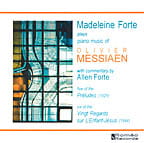 Future plans? She’s just about to release CD devoted to Messiaen, the composer on whom she wrote her dissertation. He was actually her third thesis topic—after Barber and Boulez—but she quickly “fell in love” with his music. “I started to work in 1979, and I got in touch with him, and I eventually I got a sabbatical leave, and I coached with Yvonne Loriod.” In fact, this CD has an endorsement from Loriod. The disc grows out of lecture recitals Forte had been giving with her husband, who’s also deeply involved in Messiaen; and it contains his spoken commentary along with 11 of Messiaen’s pieces (five Preludes, six of the Vingt regards). More Messiaen is a serious possibility (as she puts it, “I’m working my way up slowly to the Vingt regards”), possibly in the form of another lecture recital. A CD of Chopin on period instruments may be drawn from her recital at Yale. “After that, to tell you the truth, I don’t know. . . .” Whatever it turns out to be, though, it will undoubtedly be well worth hearing.
Future plans? She’s just about to release CD devoted to Messiaen, the composer on whom she wrote her dissertation. He was actually her third thesis topic—after Barber and Boulez—but she quickly “fell in love” with his music. “I started to work in 1979, and I got in touch with him, and I eventually I got a sabbatical leave, and I coached with Yvonne Loriod.” In fact, this CD has an endorsement from Loriod. The disc grows out of lecture recitals Forte had been giving with her husband, who’s also deeply involved in Messiaen; and it contains his spoken commentary along with 11 of Messiaen’s pieces (five Preludes, six of the Vingt regards). More Messiaen is a serious possibility (as she puts it, “I’m working my way up slowly to the Vingt regards”), possibly in the form of another lecture recital. A CD of Chopin on period instruments may be drawn from her recital at Yale. “After that, to tell you the truth, I don’t know. . . .” Whatever it turns out to be, though, it will undoubtedly be well worth hearing.
Reprinted with permission from Madeleine Forte. For more information about Mrs. Forte and her students, see the February ’04 Newsletter or visit her website, www.madeleineforte.com.
Anniversaries
Born This Month
- 2 May 1846: Zygmunt NOSKOWSKI (d. 23 July 1909), composer.
- 2 May 1913: Florian DĄBROWSKI, composer and teacher.
- 5 May 1819: Stanisław MONIUSZKO (d. 4 June 1872).
- 12 May 1805: Jan Nepomucen BOBROWICZ (d. 2 November 1881), guitarist and composer.
- 17 May 1943: Joanna BRUZDOWICZ, composer living in France.
- 18 May 1905: Włodzimierz ORMICKI, composer, conductor, music theoretician.
- 20 May 1903: Jerzy FITELBERG (d. 25 April 1951), composer, son of the famous conductor.
- 28 May 1836: Jan KARŁOWICZ (d. 14 June 1903), father of composer Mieczysław.
- 29 May 1903: Marian NEUTEICH (d. 1943, Warsaw), composer and cellist.
- 31 May 1932: Bogusław MADEY, conductor and composer.
- 31 May 1913: Irena GARZTECKA (d. 14 November 1963), composer and pianist.
Died This Month
- 1 May 1948: Marcel POPŁAWSKI (b. 1882), composer and teacher, studied law and engineering before turning to composition.
- 4 May 1896: Józef SIKORSKI (b. 1813), composer and music theorist.
- 6 May 1892: Nikodem BIERNACKI (b. 1826), violinist and composer.
- 10 May 1964: Hanna SKALSKA-SZEMIOTH (b. 29 April 1921), composer, student of Sikorski.
- 13 May 1958: Eugeniusz MOSSAKOWSKI (b. 1885), opera singer (baritone).
- 21 May 1848: Felix JANIEWICZ (b. 1762), violinist, conductor, and composer.
- 23 May 1957: Alicja SIMON (b.1879), musicologist.
- 25 May 1917: Edward RESZKE (b. 1853), opera singer (bass), brother of Jan.
Obituary
Adolf Dygacz
Professor Adolf Dygacz was born in 1914 at Droniowice near Lubliniec. He lived in Katowice and was connected with, among other educational institutions, the State Higher School of Music (Academy of Music) in Katowice and the University of Wrocław. All of his life he collected and edited Silesian songs. He gathered about 16,300 of them, some of which were published by PWM in the collection Folk Songs of the Opole Region Silesia in 1954. He had a considerable collection of unique, folk musical instruments. He also explored the customs of Silesian professional groups, including miners and steel-workers. Nine years ago, he became the first Honorary Silesian of the Year.

